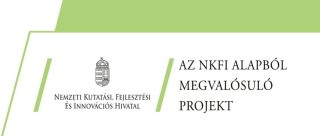On December 31, 2024, the University of Veterinary Medicine Budapest concluded a large-scale, multi-year research collaboration with the Vietnamese National Veterinary Research Institute. The project, which investigated the epidemiology of blood parasites causing infections in ruminants, horses, and carnivores in Northern Vietnam, delivered significant scientific results.
Data was collected across three provinces in northern Vietnam over the three-year study. Researchers identified 1,831 ticks belonging to nine species, five of which were documented in Vietnam for the first time. Additionally, the analysis of blood-feeding Diptera revealed five horsefly species, two of which were discoveries for the country.
The meticulous PCR analysis of 2,400 blood samples yielded impressive results: nearly 50% of the samples contained blood parasites. Among these were several pathogens of veterinary significance that had not been previously recorded in Vietnam.
The research not only discovered new species but also developed an innovative technological tool. A newly created Quantum GIS plugin enables researchers to visualize and analyze collected data based on various factors such as time periods, host species, and pathogens. This tool is openly accessible and can be used by research groups worldwide.
The findings were published in four scientific journals and presented at both national and international conferences. Vietnamese researchers also gained expertise in next-generation sequencing technologies, bioinformatics, and geospatial methods, significantly improving their ability to identify vectors and pathogens in the long term.
The project enriched not only veterinary research but also education: Vietnamese PhD students and international students studying in Hungary participated in the studies. The results contribute to reducing economic losses caused by animal diseases, ensuring safer food production, and mitigating the risks of zoonotic infections that can spread to humans.
This collaboration marks a new chapter in joint efforts between Hungarian and Vietnamese researchers. The outcomes are significant not only for the scientific community but also for animal husbandry and food safety in both countries.
The applied research and development project was carried out by the University of Veterinary Medicine with funding from the National Research, Development, and Innovation Fund under the “Hungarian-Vietnamese Applied Research and Development Cooperation Program.” The project, titled “Epidemiology of Emerging Vector-Borne Blood Parasites in Ruminants, Horses, and Carnivores in Northern Vietnam” (ID 2019-2.1.12-TÉT_VN-2020-00012), received 38.7 million HUF in non-refundable support and was implemented between January 1, 2022, and December 31, 2024.
Reference
Hornok, S., Farkas, R., Duong, N.N. et al. A morpho-phylogenetic update on ixodid ticks infesting cattle and buffalo in Vietnam, with three new species to the fauna and a checklist of all species indigenous to the country. Parasites & Vectors 17, 319 (2024). https://doi.org/10.1186/s13071-024-06384-5

